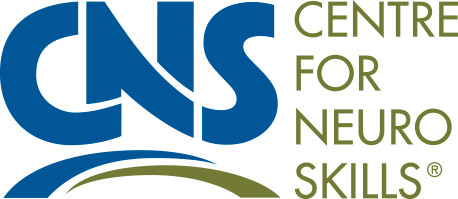Advancing Knowledge of Brain Injury Enhances Patient Outcome
CNS recognizes that greater understanding of brain injury leads to more effective patient care. To that end, an esteemed group of neuroscientists and research assistants comprise our research department. Their work includes publication of papers in renowned journals and presenting these findings at national and international conferences.
Since its inception over 10 years ago, the research department has focused on diagnosing and treating brain injury through original research, analysis, and findings. The inclusion of an in-house research staff allows CNS to analyze and improve best practices. Moreover, it distinguishes CNS as an industry leader and active contributor to the growing body of neurorehabilitation research.
The research team conducts original clinical studies, all of which are approved by an Institutional Review Board. CNS neuroscientists also collaborate with affiliates from several institutions, such as University of California at Los Angeles (UCLA), the Icahn School of Medicine at Mt. Sinai Medical Center, Transitional Learning Center, and University of Texas Southwestern Medical Center.
Elevating awareness, supporting best practices – neuroscientists’ findings enrich treatment planning
Clinical Studies: Our research team investigates persons with traumatic and acquired brain injuries to study relationships between injury and a host of neurological concerns, and correlations between quality of recovery and postacute rehabilitation. Notable studies include:
• Interplay between neuropathology and activity based rehabilitation after traumatic brain
injury (TBI)
• Sleep alterations following brain injury and stroke
• Long term outcome following rehabilitation
• Effects of rehabilitation and gender on stroke outcome
• Detection of growth hormone deficiency after TBI and stroke
• Life-care costs associated with post-acute rehabilitation versus costs without rehabilitation
• Hypoaminoacidemia prevalence following chronic TBI
Publications: CNS neuroscientists are published in world-renowned journals and have also written academic textbooks, some of which are standard curriculum in many educational settings. Journal publications and texts include:
• Journal of Neurotrauma, Brain Research, Cerebrum, Case Management, Brain Injury
Professional, NeuroRehabilitation, International Journal of Therapy and Rehabilitation, Journal of Rehabilitation Outcomes Measurement
• A chapter in the Certified Brain Injury Specialist certification textbook, The Essential Brain Injury Guide 5.0
• The academic textbook Traumatic Brain Injury: Rehabilitation, Treatment, and Case Management
• The Handbook of Clinical Neurology-Traumatic Brain Injury Vol. II
Conferences: Researchers also share their findings at national and international conferences:
• University of California Neurotrauma Symposium
• American Congress of Rehabilitation Medicine meeting
• Association for Behavior Analysis International convention
• International Stroke Conference
• National Neurotrauma Meeting
• International Neurotrauma Symposium
Contributing to the narrative on brain injury, the research team also serves as leaders and members on several committees, including the National and International Neurotrauma Society, TBI Common Data Elements, the Federal Advisory Committee for the Scientific Merit Review Board for Brain Injury, the American Heart/Stroke Association board, and California Awards for Performance Excellence.
Meet the CNS Research Team
Grace S. Griesbach, Ph.D. – National Director of Clinical Research
Lisa Kreber, Ph.D. – Senior Neuroscientist/Research Coordinator
Jessica Ashley, Ph.D. – Neuroscientist
Stephanie Howell, Ph.D.– Researcher
Charan Singh, B.S. – Research Associate
Kevin Randle, CBIS – Research Assistant
The accomplishments of these scientists underscore the company’s emphasis on expanding awareness of brain injury, its causes, and best practices in care. Their work also contributes to improved healthcare delivery, which ultimately benefits patients, their families, and society.

